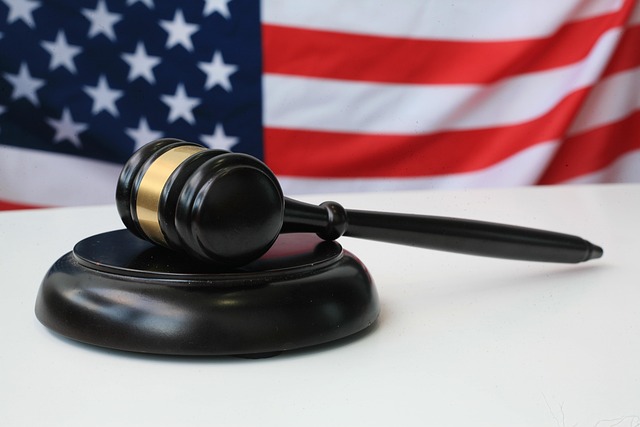Mitigating penalties in white-collar crime cases is a nuanced process where lawyers play a vital role in achieving just outcomes for clients. By highlighting unique circumstances, character, cooperative behavior, and lack of prior criminal history, defense attorneys can reduce sentences for corporations and individuals. Strategies include presenting compelling defenses, negotiating plea bargains, and emphasizing mitigating factors like remorse and community service. This strategic approach aims to balance justice with consequences, ensuring fairness in cases with severe impacts on philanthropic and political communities.
Criminal law cases involving white-collar crime are complex, demanding a nuanced understanding of mitigating factors and innovative legal strategies. This article delves into the intricate world of white-collar offenses, focusing on mitigating penalties through reducing sentences and employing effective defenses. We explore key concepts like the role of mitigating factors, common reduction strategies, and successful case studies in high-profile scandals. By examining these aspects, we provide valuable insights into navigating Mitigating Penalties in White-Collar Crime Cases.
- Understanding White-Collar Crime Cases: A Overview
- The Role of Mitigating Factors in Sentence Reduction
- Common Strategies to Reduce Penalties for White-Collar Offenders
- Legal Defenses and Their Effectiveness in Mitigation
- Case Studies: Successful Mitigation in High-Profile Scandals
Understanding White-Collar Crime Cases: A Overview

White-collar crime cases encompass a range of financial and business-related offenses, often involving corporate and individual clients. These crimes, which can include fraud, embezzlement, and money laundering, differ from traditional street crimes in their lack of physical violence. However, their impact on victims, including philanthropic and political communities, can be profound. Understanding these cases requires delving into the complex web of legal, financial, and ethical considerations.
Mitigating penalties in white-collar crime cases is a nuanced process. It involves assessing the specific circumstances, motivations, and level of involvement of both corporations and individuals. Lawyers play a crucial role in achieving extraordinary results for their clients by presenting compelling defenses, negotiating plea bargains, and highlighting mitigating factors. This strategic approach ensures that justice is served while also considering the potential consequences for all stakeholders involved, from corporate and individual clients to the broader societal fabric.
The Role of Mitigating Factors in Sentence Reduction

In criminal law, mitigating factors play a pivotal role in reducing sentences for defendants, especially in complex cases like white-collar crime. Mitigating penalties refer to circumstances or conditions that lessen the severity of an offense. When presented with compelling mitigating factors, judges have the discretion to impose lesser punishments. This is particularly significant in white-collar and economic crimes, where individuals may face severe consequences despite not having a direct physical impact on victims.
Defendants often rely on their character, cooperative behavior, lack of criminal history, or the fact that they took responsibility for their actions as mitigating factors. For instance, a white-collar defense attorney might argue that their client’s remorse and active involvement in community service programs demonstrate a genuine change in behavior, thereby warranting a reduced sentence or avoiding indictment altogether. These strategies are crucial in navigating complex legal proceedings and ensuring just outcomes in cases involving financial crimes.
Common Strategies to Reduce Penalties for White-Collar Offenders

In mitigating penalties in white-collar crime cases, a common strategy is to demonstrate that the offender did not intend to cause harm or financial loss. This can be achieved by presenting evidence of good character and reputation, as well as any remorse shown by the defendant. Additionally, showcasing cooperation with authorities and accepting responsibility for the actions can significantly impact the outcome in favor of the general criminal defense.
Another effective approach is to highlight any mitigating factors unique to the case, such as psychological issues or personal challenges that may have contributed to the crime but do not reflect poorly on the defendant’s overall moral character. These strategies aim to present a more nuanced picture to the court, which can result in reduced penalties across the country for white-collar offenders compared to those charged with more violent crimes.
Legal Defenses and Their Effectiveness in Mitigation

Legal defenses play a pivotal role in mitigating penalties in white-collar crime cases, offering avenues to challenge accusations and potentially secure more favorable outcomes. These defenses are crucial tools for all stages of the investigative and enforcement process, aiming to counter the prosecution’s case and protect the rights of the accused. While the effectiveness of these strategies varies based on the specifics of each case, they can range from reducing sentences to achieving a complete dismissal of all charges.
Among common legal defenses in white-collar crime cases are lack of intent, where defendants argue they did not intend to commit fraud or other offenses; statutory interpretations, which involve analyzing and disputing the applicability of relevant laws; and procedural errors, aimed at invalidating evidence or proceedings if protocol was not followed correctly. The success of these defenses hinges on the specifics of the case, the strength of evidence, and legal precedents, underscoring the importance of a robust general criminal defense strategy.
Case Studies: Successful Mitigation in High-Profile Scandals

In the realm of criminal law, case studies often highlight the art of mitigation—a strategic approach to lightening the blow for clients accused in high-profile scandals. Successful white-collar defense attorneys navigate complex landscapes, understanding that mitigating penalties goes beyond mere argumentation. It involves a meticulous examination of the facts, crafting compelling narratives, and presenting evidence that humanizes their clients. This strategy is particularly crucial in high-stakes cases where public perception can significantly influence the outcome.
By delving into the motivations, circumstances, and personal growth of their clients, defense attorneys can reshape perceptions. For example, demonstrating a client’s proactive steps to rectify harm or showcasing remorseful behavior can sway judges and juries. This approach not only strengthens the legal argument but also fosters a sense of fairness. As such, mitigating penalties in white-collar crime cases is an art that, when executed adeptly, can bring about positive outcomes for clients facing severe repercussions—a testament to the power of strategic defense in navigating legal labyrinths.
In the realm of criminal law, understanding and effectively navigating mitigating penalties in white-collar crime cases is paramount. Through a comprehensive analysis of mitigating factors, legal defenses, and successful case studies, this article has illuminated strategies to reduce sentences for white-collar offenders. By recognizing the nuances of these cases and employing tailored approaches, legal professionals can foster more just outcomes, ensuring that punishment aligns with culpability while acknowledging the complexities inherent in corporate and financial misconduct.






